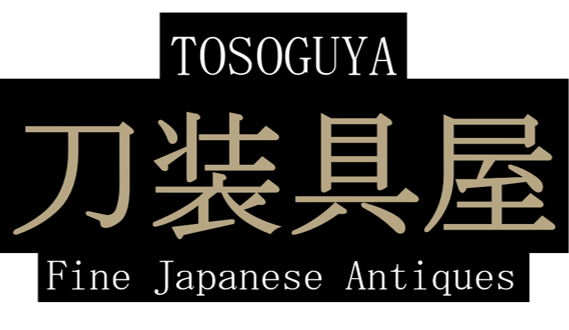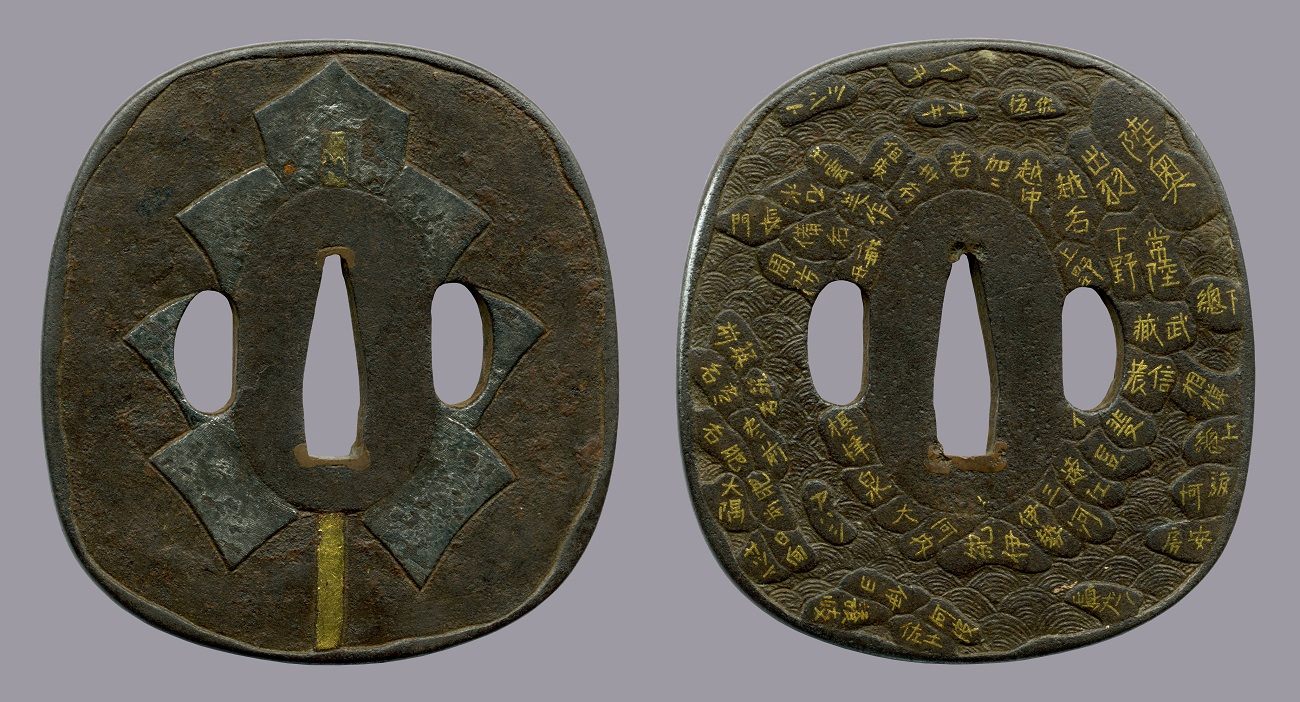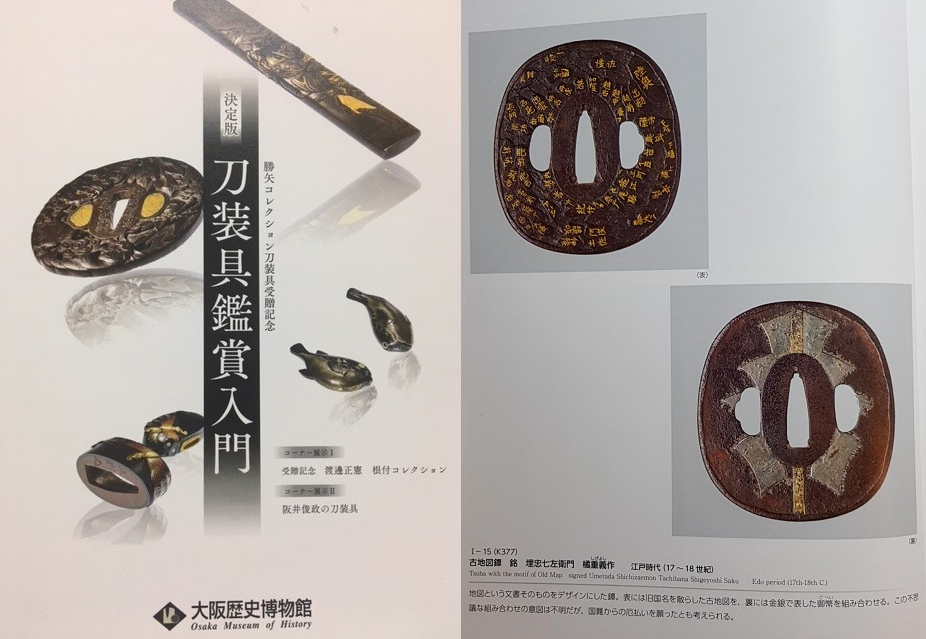

Umetada school (埋忠) iron tsuba. Motif of a Shinto spiritual implement called a Gohei (御幣), used for ritual blessings on one side, and an old map of Japan on the other. The Gohei is inlaid in silver and gold. The map shows the old provinces of Kyushu, Shikoku and Honshu, each with their names inlaid in gold. Hokkaido was not yet part of Japan at that time. Finely inscribed waves surround the islands - a nice touch. The inlay on both sides is executed in nunome-zōgan (布目象嵌). The carving on both sides is done in sukidashibori (鋤出彫), meaning that the plate has been carved down slightly from the mimi and seppadai to define the motifs, with finer carving tools used to add details and scribe lines for the inlay. The tsuba is in excellent condition, with almost no loss of inlay. It would make a fine addition to any collection.
A virtually identical tsuba is exhibited and published by the Osaka Museum of History's Katsuya Collection. It is signed: Umetada Shichizaemon Tachibana Shigeyoshi Saku (埋忠七左衛門 橘重義作). The signed example gives confidence to the attribution of this piece to the same artist. It is thought that Shigeyoshi was responsible for moving the Umetada school from Kyoto to Edo near the middle of the 17th century.
Refer to publication: Katsuya Korekushon: Tōsōgu Kanshō Nyūmon, 2019
Measurements: 8.4cm x 7.8cm x 0.4cm
Early Edo Period (江戸時代前期), 17th century
SOLD

